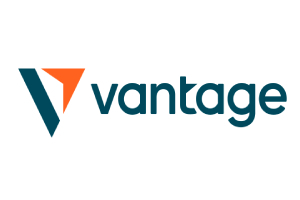Non-fungible tokens (NFTs) have captured mainstream attention, but beneath the hype lies a complex web of serious challenges that threaten their long-term viability.
While these unique digital assets promise to establish ownership of everything from artwork to virtual real estate, NFTs confront fundamental obstacles that could determine their future success or failure.
The problems surrounding NFTs extend far beyond simple market volatility. These challenges touch on legal frameworks, technical infrastructure, security protocols, and financial regulations that remain largely unresolved.
Understanding these issues is crucial for anyone considering involvement in the NFT space.
Why Legal Confusion Hurts NFT Growth
The absence of clear legal definitions for NFTs presents perhaps the most significant barrier to widespread adoption. Currently, no unified international framework exists to classify these digital assets, leaving buyers and sellers operating in a regulatory gray area.
Different countries are developing conflicting approaches to NFT classification, creating a patchwork of inconsistent rules:
- United States: Treats most NFTs as collectibles, but some may qualify as securities depending on their structure
- European Union: Currently developing comprehensive crypto regulations that will likely include NFT guidelines
- Asia-Pacific: Countries like Japan have clearer frameworks, while others maintain complete regulatory silence
- Developing nations: Many lack any specific NFT regulations, creating legal voids
This inconsistency creates compliance nightmares for platforms and users operating across borders. Financial regulators face similar challenges when determining whether specific NFTs should be classified as securities, forcing many legitimate businesses to avoid the NFT space entirely.
The Price Problem: Why NFTs Are So Hard to Value
Determining fair prices for NFTs remains one of the market’s most persistent challenges. Unlike traditional assets with established valuation methods, NFTs lack standardized pricing mechanisms, leading to extreme volatility and speculative bubbles.
The most common pricing factors include:
- Creator reputation: Established artists command higher prices, but this creates celebrity-driven bubbles
- Rarity and scarcity: Limited edition collections often see inflated demand, regardless of actual utility
- Community hype: Social media buzz can drive prices up rapidly, then crash just as quickly
- Utility features: NFTs with gaming or platform benefits may hold value better than pure collectibles
Market manipulation becomes easier when price discovery mechanisms are unclear. The absence of historical data further complicates valuation efforts, forcing investors to rely on speculation rather than analysis.
What Do You Actually Own When You Buy NFTs?
Purchasing an NFT doesn’t automatically grant comprehensive intellectual property rights, creating confusion about what buyers actually own. Most NFT transactions only transfer limited usage rights, not copyright ownership or exclusive control over the underlying content.
This distinction proves critical in legal disputes. Buyers often discover they cannot prevent others from copying, distributing, or commercially using “their” NFT content.
Copyright infringement represents another major concern, as unauthorized individuals frequently create NFTs using copyrighted material without permission from original creators.
Security Risks Every NFT Owner Should Know
Cybersecurity risks pose constant threats to NFT holders and platforms. The irreversible nature of blockchain transactions means that successful attacks often result in permanent asset loss with no recourse for victims.
Common security threats facing NFT users include:
- Phishing scams: Fake marketplaces that steal wallet credentials and drain accounts
- Smart contract exploits: Code vulnerabilities that allow unauthorized NFT transfers
- Social engineering: Hackers impersonate customer support to gain wallet access
- Malicious airdrops: Free NFTs that contain hidden code to compromise wallets
- Rug pulls: Project creators disappear with investor funds after initial sales
Platform security failures can affect thousands of users simultaneously. When major NFT marketplaces experience data breaches, user wallets and personal information become vulnerable to exploitation.
Final Word
The challenges facing NFTs reflect deeper issues within blockchain technology and digital asset regulation.
While solutions may emerge as the technology matures, current obstacles suggest that widespread NFT adoption will require significant improvements in legal frameworks, security protocols, and market infrastructure.
Interested In Trading The Market With A Trustworthy Partner? Try Eightcap Today.
- Broker
- Min Deposit
- Score
- Visit Broker
- Award-winning Cryptocurrency trading platform
- $100 minimum deposit,
- FCA & Cysec regulated
- 20% welcome bonus of upto $10,000
- Minimum deposit $100
- Verify your account before the bonus is credited
- Fund Moneta Markets account with a minimum of $250
- Opt in using the form to claim your 50% deposit bonus
Learn to Trade
Never Miss A Trade Again

Signal Notification
Real-time signal notifications whenever a signal is opened, closes or Updated

Get Alerts
Immediate alerts to your email and mobile phone.

Entry Price Levels
Entry price level for every signal Just choose one of our Top Brokers in the list above to get all this free.



